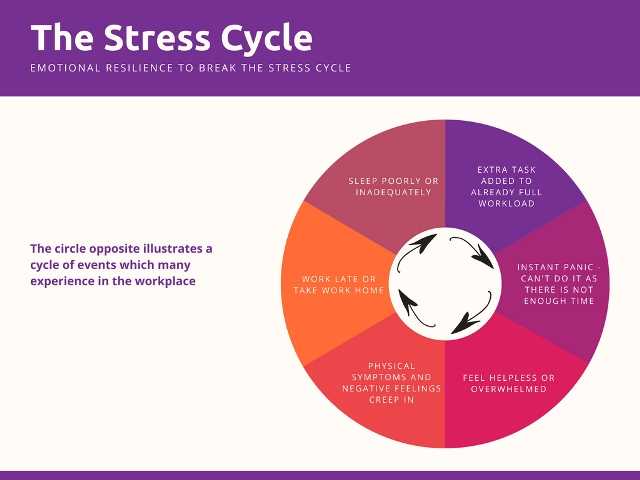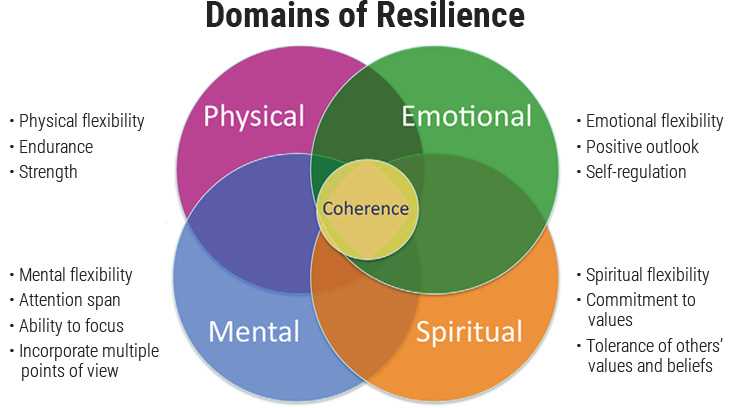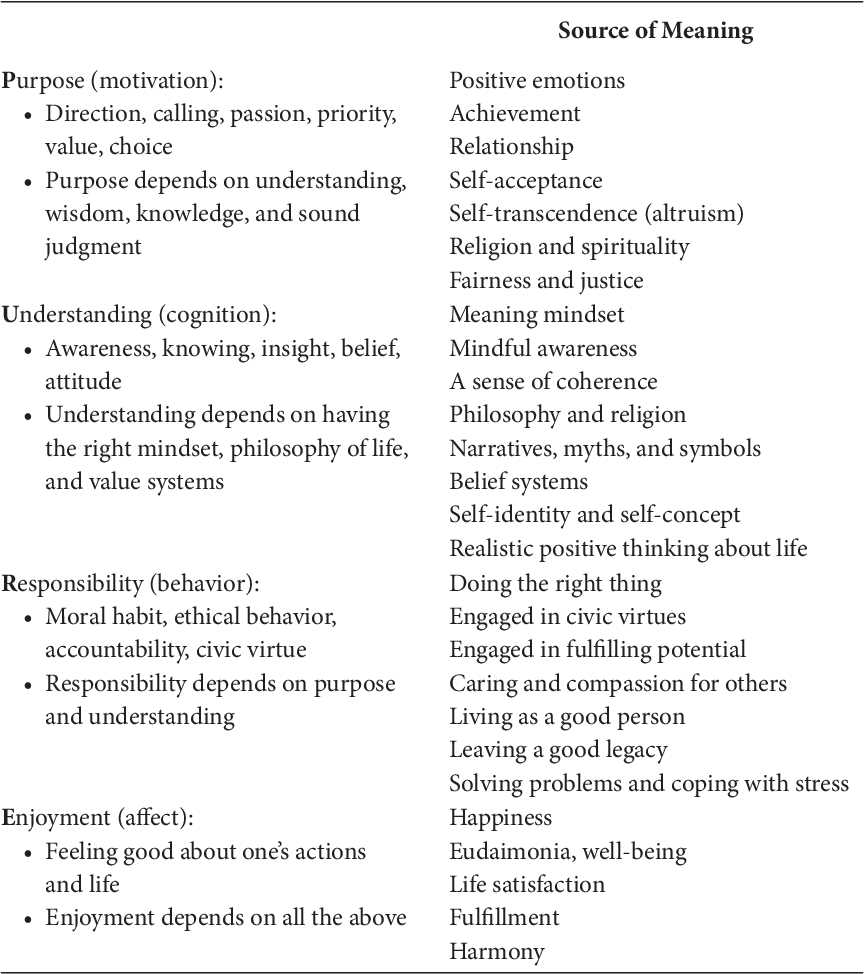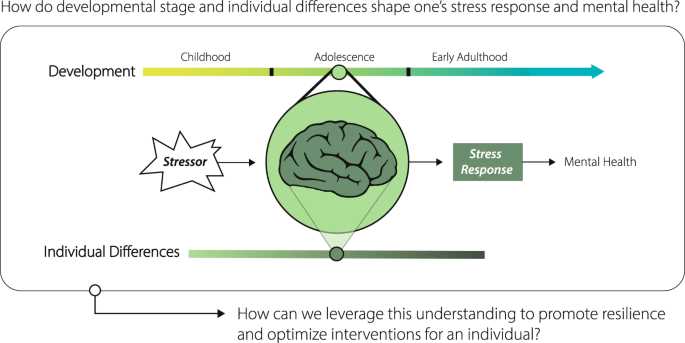
In today’s fast-paced and demanding world, mental health and well-being have become increasingly important. As individuals, we are constantly faced with various stressors that can negatively impact our mental state. However, not everyone reacts to stress in the same way. Some individuals have the ability to bounce back from adversity and maintain their mental well-being, while others may struggle to cope with the same stressors.
This ability to adapt and bounce back is known as resilience. Resilience refers to an individual’s capacity to withstand and recover from difficult situations. It involves the ability to effectively cope with stress and maintain a positive mental state. Resilience is not a fixed trait, but rather a set of skills and strategies that can be developed and strengthened over time.
Understanding stress resilience is crucial for promoting mental health and well-being. By learning about the factors that contribute to resilience, individuals can better equip themselves with the necessary tools to cope with stress and adversity. Additionally, understanding stress resilience can also help in the traduction of effective interventions and strategies to improve mental health outcomes.
Research has shown that certain factors contribute to the development of resilience. These include social support, positive relationships, problem-solving skills, and a sense of purpose and meaning in life. By fostering these factors, individuals can enhance their ability to adapt and bounce back from stressful situations. Moreover, developing resilience can also have positive effects on physical health, as chronic stress has been linked to various health problems.
What is Stress Resilience?

Stress resilience refers to the ability to adapt and bounce back from stressful situations. It is a mental quality that enables individuals to maintain their well-being and cope with the challenges of life. Resilience is not about avoiding stress, but rather about effectively managing and responding to it.
Stress is a normal part of life and can have both positive and negative effects on our mental and physical health. While some stress can be motivating and help us perform better, excessive or chronic stress can have detrimental effects on our well-being.
Resilience allows individuals to navigate and overcome stress by developing adaptive coping strategies. These strategies can include seeking social support, practicing self-care, engaging in relaxation techniques, and adopting a positive mindset.
Maintaining stress resilience is essential for mental health and overall well-being. It helps individuals build a strong foundation to handle life’s challenges and prevents the negative impact of stress on physical and mental health. Resilience can be learned and developed through various techniques and practices, such as mindfulness, exercise, and therapy.
In conclusion, stress resilience is the ability to adapt and thrive in the face of stress. It involves developing effective coping strategies and maintaining mental well-being. By cultivating resilience, individuals can better navigate the ups and downs of life and protect their overall health.
Definition of Stress Resilience

Stress resilience refers to the mental and emotional ability to cope with and adapt to stressful situations without experiencing long-term negative effects on mental health and well-being. It is the capacity to bounce back and recover from the challenges and pressures of life.
Resilience involves the development of effective strategies and coping mechanisms that enable individuals to maintain a sense of balance and stability in the face of stressors. These strategies may include problem-solving skills, social support networks, positive self-talk, and the ability to regulate emotions.
Stress resilience is not about avoiding stress altogether, but rather about building the capacity to manage and navigate stress in a healthy and productive way. It is about developing the adaptability and flexibility to adjust to changing circumstances and demands.
Resilience is not a fixed trait, but rather a dynamic process that can be cultivated and strengthened over time. It involves learning from challenges and setbacks, and using these experiences to build greater resilience for the future.
The translation of stress resilience into practical strategies and interventions is an important area of research and practice. By understanding the factors that contribute to resilience, researchers and practitioners can develop effective interventions to promote mental health and well-being in individuals facing stress.
| Key Concepts | Definition |
|---|---|
| Stress resilience | The mental and emotional ability to cope with and adapt to stressful situations without experiencing long-term negative effects on mental health and well-being. |
| Strategies | Effective mechanisms and approaches used to manage and navigate stress in a healthy and productive way. |
| Resilience | The capacity to bounce back and recover from the challenges and pressures of life. |
| Adaptability | The ability to adjust to changing circumstances and demands. |
Importance of Stress Resilience

Stress is a common part of life and can have significant impacts on our health and mental well-being. Whether it’s due to work, relationships, or other life challenges, stress can take a toll on our overall quality of life. However, developing stress resilience is crucial in coping with and managing these stressors.
Resilience refers to the ability to bounce back from difficult experiences and adapt to adversity. When it comes to stress, resilience plays a vital role in how we perceive and respond to stressful situations. Those with higher levels of resilience are better equipped to handle stress and are less likely to experience negative physical and psychological effects.
Research has shown that individuals with high levels of stress resilience have better overall health outcomes. They are less prone to stress-related illnesses such as heart disease, hypertension, and mental health disorders. Additionally, resilient individuals tend to have better coping strategies, which can lead to improved well-being and a higher quality of life.
Building stress resilience is not only important for individuals but also for society as a whole. Resilient individuals are better able to navigate and adapt to the challenges of daily life, which can have a positive impact on their relationships, work performance, and overall productivity. By investing in stress resilience, we can promote healthier communities and reduce the economic burden associated with stress-related health issues.
There are various strategies that can help individuals develop stress resilience. These include building a strong support network, practicing self-care, engaging in regular physical activity, and learning effective stress management techniques. By incorporating these strategies into our daily lives, we can enhance our ability to cope with stress and improve our overall well-being.
In conclusion, stress resilience is of utmost importance in today’s fast-paced and demanding world. It plays a significant role in protecting our physical and mental health and enables us to lead fulfilling lives. By understanding and implementing strategies to enhance stress resilience, we can navigate life’s challenges with greater ease and promote a healthier, more resilient society.
Factors Influencing Stress Resilience
Stress resilience refers to an individual’s ability to adapt and cope with stress in a healthy manner, promoting overall well-being and mental health. There are several factors that can influence an individual’s stress resilience:
- Strategies: The strategies an individual uses to cope with stress can greatly impact their resilience. Effective coping strategies, such as problem-solving, seeking support, and practicing self-care, can enhance stress resilience.
- Stress: The level and frequency of stress experienced by an individual can affect their resilience. Chronic or intense stress can erode resilience over time, while moderate levels of stress can actually promote resilience by providing opportunities for growth and adaptation.
- Traduction: The ability to translate and make meaning out of stressful experiences can contribute to resilience. Individuals who are able to find purpose or learn from their stressors are more likely to bounce back and maintain their well-being.
- Adaptability: The ability to adapt and adjust to changing circumstances is an important factor in stress resilience. Being flexible and open to new ways of thinking and behaving can help individuals navigate and overcome stressful situations.
- Health: Physical health plays a significant role in stress resilience. Engaging in regular exercise, maintaining a balanced diet, and getting enough sleep can all contribute to a stronger resilience to stress.
Understanding the factors that influence stress resilience can help individuals develop strategies and behaviors that promote their ability to cope with stress and maintain their well-being. By cultivating resilience, individuals can better navigate the challenges of life and protect their mental health.
Genetic Factors
Adaptability to stress is influenced by a combination of genetic and environmental factors. Genetic factors play a crucial role in determining an individual’s resilience to stress. Certain genes are associated with increased susceptibility to stress-related health problems, while others are linked to better coping mechanisms and overall well-being.
Research has shown that genetic variations can impact the body’s response to stress. For example, certain genes may regulate the release of stress hormones, such as cortisol, which can affect how an individual handles stressful situations. Additionally, genetic factors can influence the functioning of neurotransmitters in the brain, which play a role in mental health and resilience.
Understanding the genetic factors involved in stress resilience is important for several reasons. Firstly, it can help identify individuals who may be more susceptible to stress-related health issues, allowing for targeted interventions and support. Secondly, it can provide insights into the biological mechanisms underlying stress resilience, leading to the development of new treatments and interventions.
Furthermore, studying genetic factors can contribute to the translation of research findings into clinical practice. By identifying specific genes associated with stress resilience, it may be possible to develop personalized interventions that target these genes and promote adaptive coping strategies. This personalized approach holds promise for improving mental health and well-being in individuals who are particularly vulnerable to stress.
In conclusion, genetic factors play a significant role in an individual’s adaptability to stress. Understanding the genetic underpinnings of stress resilience can provide valuable insights into the development of interventions that promote well-being and mental health.
Environmental Factors

Environmental factors play a crucial role in determining an individual’s health and well-being, as well as their ability to cope with and adapt to stress. These factors can have a significant impact on an individual’s resilience and their ability to translate stress into positive outcomes.
One of the key environmental factors that can influence stress resilience is the physical environment. Research has shown that exposure to natural environments, such as green spaces and parks, can have a positive effect on mental health and well-being. These natural environments provide opportunities for relaxation, physical activity, and social interaction, all of which can help individuals cope with and reduce stress.
In addition to the physical environment, social factors also play a crucial role in stress resilience. Strong social support networks, such as close relationships with family and friends, can provide individuals with the emotional and practical support they need to navigate stressful situations. These social connections can help individuals feel understood, validated, and supported, which can enhance their ability to cope with and adapt to stress.
Another important environmental factor that can influence stress resilience is access to resources and opportunities. Individuals who have access to education, employment, and other resources are more likely to have the skills and support they need to effectively cope with stress. This can include access to mental health services, financial resources, and opportunities for personal and professional growth.
In conclusion, environmental factors have a significant impact on an individual’s stress resilience and their ability to translate stress into positive outcomes. The physical environment, social factors, and access to resources all play a crucial role in determining an individual’s ability to cope with and adapt to stress. Understanding and addressing these environmental factors can help promote resilience and well-being, both at the individual and community level.
Psychological Factors

Understanding the psychological factors that contribute to stress resilience is crucial for the translation of research findings into interventions that promote well-being and improve coping strategies. Psychological factors play a significant role in determining an individual’s ability to maintain good mental health and adaptability in the face of stress.
Resilience, the ability to bounce back from adversity, is closely linked to psychological factors such as self-esteem, optimism, and self-efficacy. Individuals with high levels of self-esteem tend to have a more positive outlook on life, which can help them cope better with stress and maintain their overall well-being.
Optimism, the tendency to view situations in a positive light, is another psychological factor that contributes to stress resilience. Optimistic individuals are more likely to perceive stress as a challenge rather than a threat, leading to better coping strategies and improved mental health.
Self-efficacy, the belief in one’s ability to handle challenging situations, is also an important psychological factor in stress resilience. Individuals with high self-efficacy are more likely to believe that they can effectively manage stressors and maintain their health, leading to better overall well-being.
In addition to these individual psychological factors, social support also plays a crucial role in stress resilience. Having a strong support network can provide individuals with the emotional and practical resources they need to cope with stress and maintain their mental health.
Understanding and addressing these psychological factors is essential for promoting stress resilience and improving mental health outcomes. By focusing on enhancing self-esteem, fostering optimism, and promoting self-efficacy, interventions can help individuals develop better coping strategies and improve their overall well-being. Additionally, fostering strong social support networks can provide individuals with the resources they need to effectively manage stress and maintain their mental health.
How to Improve Stress Resilience
Stress resilience is an important factor in maintaining overall health and well-being. It refers to the ability to adapt and bounce back from stressful situations. Building stress resilience can help individuals better cope with the challenges and demands of daily life. Here are some strategies to improve stress resilience:
| 1. Prioritize self-care: | Take care of your physical, mental, and emotional health. Engage in activities that bring you joy and relaxation, such as exercise, meditation, and spending time with loved ones. |
| 2. Develop a strong support network: | Build relationships with people who provide support and encouragement. Having a strong support network can help you feel more connected and less alone during times of stress. |
| 3. Practice stress management techniques: | Learn and implement stress management techniques, such as deep breathing, progressive muscle relaxation, and mindfulness. These techniques can help you relax and reduce the impact of stress on your body and mind. |
| 4. Cultivate positive thinking: | Focus on positive aspects of your life and practice gratitude. Positive thinking can help shift your perspective and build resilience in the face of stress. |
| 5. Set realistic goals: | Break down big tasks into smaller, manageable goals. This can help you feel a sense of accomplishment and reduce stress associated with overwhelming tasks. |
By implementing these strategies, individuals can improve their stress resilience and enhance their overall well-being. Remember, building stress resilience is an ongoing process, and it takes time and practice to develop these skills. With persistence and dedication, individuals can better navigate the challenges of life and maintain their mental and physical health.
Developing Coping Mechanisms

Stress is a common mental health issue that affects individuals on a daily basis. It can have a negative impact on our well-being and overall quality of life. Developing coping mechanisms is crucial for managing stress and promoting mental health.
Resilience is the ability to adapt and bounce back from stressful situations. It is an important trait to cultivate in order to effectively cope with stress. There are various strategies that can be employed to develop resilience and enhance our ability to handle stress.
One strategy is to build a support network. Having a strong support system of friends, family, and professionals can provide a sense of security and comfort during challenging times. These individuals can offer guidance, advice, and a listening ear, helping us to navigate through stressful situations.
Another coping mechanism is practicing self-care. Taking care of our physical, mental, and emotional well-being is essential for managing stress. Engaging in activities that bring joy and relaxation, such as exercise, meditation, or hobbies, can help to reduce stress levels and promote overall well-being.
Furthermore, developing effective problem-solving skills can contribute to stress resilience. Being able to identify and address the root cause of stress can help to alleviate its impact. This may involve seeking professional help, learning new skills, or finding alternative solutions to challenging situations.
Lastly, cultivating a positive mindset and practicing gratitude can enhance our ability to cope with stress. Focusing on the positive aspects of life and expressing gratitude for the things we have can shift our perspective and improve our overall well-being.
In conclusion, developing coping mechanisms is crucial for managing stress and promoting mental health. Strategies such as building a support network, practicing self-care, developing problem-solving skills, and cultivating a positive mindset can enhance stress resilience and contribute to overall well-being.
Practicing Mindfulness and Meditation

Mental stress is a common experience that affects individuals in various ways. It can have a negative impact on one’s overall health and well-being if not properly addressed. However, with the right strategies, individuals can develop resilience and adaptability to cope with stress effectively.
One such strategy is practicing mindfulness and meditation. Mindfulness involves being fully present and aware of the present moment, without judgment. It allows individuals to observe their thoughts and emotions without getting caught up in them. This practice helps to cultivate a sense of calm and clarity, reducing the negative effects of stress on mental health.
Meditation, on the other hand, is a practice that involves focusing one’s attention and eliminating the stream of thoughts that typically occupy the mind. It helps to calm the mind and promote relaxation. Regular meditation can improve concentration, reduce anxiety, and enhance overall well-being.
Both mindfulness and meditation have been found to be effective in managing stress and promoting mental well-being. Research has shown that these practices can reduce the production of stress hormones, lower blood pressure, and improve immune function.
Integrating mindfulness and meditation into daily life can be done in various ways. It can be as simple as taking a few minutes each day to sit quietly and focus on the breath. Mindfulness can also be practiced during everyday activities, such as eating, walking, or even washing dishes. The key is to bring attention to the present moment and fully engage in the task at hand.
By incorporating these practices into daily routines, individuals can develop a greater sense of self-awareness and improve their ability to cope with stress. They can enhance their mental resilience and promote overall well-being. The translation of these practices into daily life is crucial for maintaining a healthy mind and body.
In conclusion, practicing mindfulness and meditation are powerful tools for managing stress and promoting mental well-being. These practices can help individuals develop resilience and adaptability, leading to better coping strategies and improved overall health. By incorporating these practices into daily life, individuals can enhance their well-being and live a more balanced and fulfilling life.

I am Patrina de Silva, a psychologist and mental health blogger in Sri Lanka. After obtaining psychology degrees from the University of Colombo and Monash University, I returned home to work as a counselor while also starting the popular blog “Pressy but Happy” to provide advice on psychological issues. Over the past decade, my empathetic articles have made my blog a leading mental health resource in the country. In addition to writing, I maintain a private therapy practice, frequently volunteer counseling time, and conduct seminars, driven by my passion for destigmatizing mental illness and educating the public on the mind-body connection. I strive to be an influential voice in my field through my compassionate approach.
